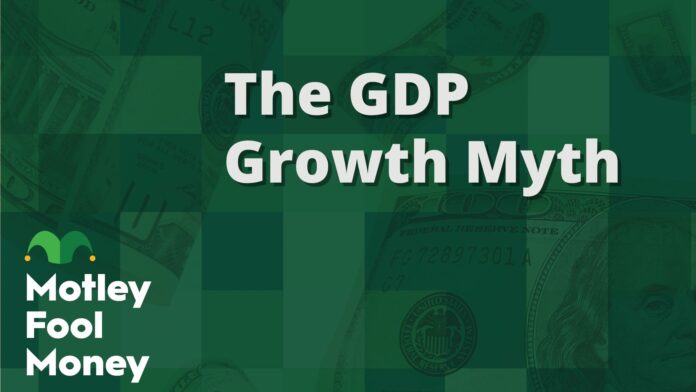In this podcast, Motley Fool analyst Buck Hartzell and host Dylan Lewis cover:
- Why thereís been a surge in interest in China’s Shanghai Stock Exchange Composite, which rose 20% in September.
- Research indicating that high GDP growth doesnít always lead to strong market returns for investors outside the U.S.
- What to consider when investing internationally and why DLocal stands out as an interesting small-cap stock.
Motley Fool host Mary Long also speaks with analyst Alicia Alfiere about Bumble, a dating app that has recently pivoted to grow its friendship services.
For full episodes of all the Motley Fool’s free podcasts, visit our podcast center. To start investing, check out our beginner’s guide to investing in stocks. A full transcript follows the video below.
This video was recorded on Oct. 07, 2024.
Dylan Lewis: When does growth not lead to growth? Letís dive in. Buck, welcome.
Buck Hartzell: Thanks, Dylan! Excited to be here.
Dylan Lewis: Let’s talk about China’s market surge. The Shanghai Composite rose over 20% in the last two weeks of September. What’s driving this?
Buck Hartzell: While the recent growth is intriguing, I advise caution. Historically, we look at individual companies rather than GDP forecasts. The recent surge is mainly due to government stimulus, but keep in mind that returns over the past three years are only around 6% – not great overall.
Dylan Lewis: There seem to be similarities between China and the U.S. regarding consumer behavior and market responses.
Buck Hartzell: True, but there’s a significant difference: the U.S. economy is driven by consumer demand, while the Chinese economy is largely government-driven. This affects investment efficiency and overall market behavior.
Dylan Lewis: Whatís your take on investing in China?
Buck Hartzell: I find it largely uninvestable for U.S. investors. The structure of ownership is problematic, and regulatory risks abound. Additionally, government control can capriciously affect market conditions, making it hard to predict outcomes safely.
Dylan Lewis: Interesting. Now, a recent study by Professor Dereck Hosmeyer indicates countries with high GDP growth often have the worst market returns. Can you explain?
Buck Hartzell: It’s counterintuitive, but investors often drive up stock prices based on growth expectations, which can lead to poor subsequent returns as valuations become unsustainable.
Dylan Lewis: So, investing in high-growth stocks can be risky?
Buck Hartzell: Yes, exactly. Even quality companies can underperform if their valuations are too high. For example, Microsoft had a decade-long stagnation despite strong business growth.
Dylan Lewis: What about small-cap stocks? Any thoughts?
Buck Hartzell: Small-cap stocks usually outperform. Many are undervalued right now, and with recent rate cuts, they could see growth. I recommend looking into DLocal, a small-cap that offers payment solutions in challenging markets and has solid growth potential.
Dylan Lewis: Great insights, Buck! Letís pivot to Bumble. What’s the new strategy?
Alicia Alfiere: Bumble has relaunched its app to expand further into the friendship market, hoping to enhance user engagement.
Mary Long: Is Bumble succeeding in improving user experience?
Alicia Alfiere: They report better engagement and more matches for women, although average revenue per user has declined, partly due to geographical factors.
Mary Long: Other dating apps are facing challenges. What about Bumbleís position in the market?
Alicia Alfiere: They’re facing stiff competition and user intent mismatch, which is crucial for product-market fit. There’s potential for growth in areas like friendship, but it’s a competitive landscape.
Mary Long: Can technology truly solve issues like loneliness?
Alicia Alfiere: Loneliness is complex. While technology may not fully solve it, it can definitely help create connections and communities.
Dylan Lewis: Thank you both for these insights! Remember, our audience may own stocks mentioned in this show. Thanks for listening!
`

